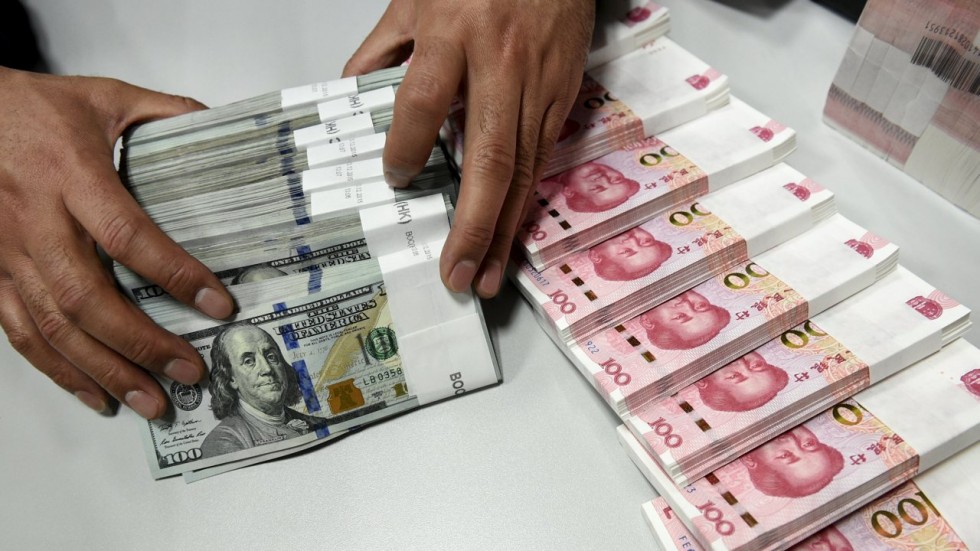- CBN Assures Nigerians, Investors of Exchange Rate Stability
Basking in the euphoria of the appreciation recorded by the naira last week, the Central Bank of Nigeria (CBN) has restated its commitment to exchange rate stability.
Speaking at the Guaranty Trust Bank Plc’s 2017 non-oil export workshop held in Lagos at the weekend, the Deputy Director Trade and Exchange Department of the CBN, Olu Vincent urged Nigerians to continue to support public policies.
He further stated that measures had been put in place to support businesses in the country, stimulate growth and grow the economy. Olu called on importers to ensure that the country benefits from what they are importing.
He said: “We (CBN) are going to do more to stabilise the value of the naira so that everybody is happy. The present government is trying to ensure that we consume what we produce locally.”
Reacting to an earlier appeal by an exporter for the federal government not to restore the export expansion grant (EEg), Vincent, said there was pressure on federal government to restore the EEG. According to him, although the CBN was against because it was being abused, but the central bank does not have the powers to prosecute.
Vincent said the federal government had disclosed plan to reintroduce the EEG. He assured the exporters that the CBN was committed to supporting their businesses.
The event which was organised by the GTBank brought together some of its key exporters to dialogue on issues affecting trade, forex and export activities, thereby providing sustainable headway for the exporters.
“Last year at the beginning of this crisis, the Governor of the CBN, Mr. Godwin Emefiele had a meeting with the exporters in Lagos. At the meeting, we discussed issues bothering on remittances, volatility in exchange rate and other issues. “Sadly, there was no sincerity of purpose amongst the people that came for that meeting. But today we can see some level of sincerity and discourse,” Vincent said.
“About 15 years ago, if you were an exporter and you didn’t repatriate your export proceeds based foreign exchange embargo, people started having the feeling that we were killing businesses.
“We decided that for the exporter, there must be Know-Your Customer (KYC) by the bank. The bank must know the account owner. We decided to shift the responsibility to commercial banks who know much of their own to make sure that the business keeps going.
Funds don’t come back to us. There are people that export with the intentions of not bringing back the funds to the country.”
He explained that under the new export regulation, if an exporter exports and doesn’t repatriate export proceed to the bank where the individual transacting business with, the bank would be sanctioned by the CBN, adding that the customer has a responsibility of bringing back the export proceed, therefore in order for the banks to accommodate the penalty from the banks they need to create a pool whereby until you repatriate the export proceeds you will not have access to the money.
Vincent stressed that the bank was supposed to know the customer very, because if the customer doesn’t bring back the export proceed, the bank would be sanctioned, while urging the bank to devise strategies to prevent them from incurring unnecessary loss.
Earlier, the Chief Executive Officer, Fullmark Commodity Limited, one of the leading commodities trading companies in the country, Sriram Venrateswaran advised the federal government not to restore the EEG.
Venrateswaran alleged that the EEG was abused by a lot of exporters in the country when it was operational, saying that a lot of companies that were not in the export business were actually collecting the grant.
This, according to him affected general exporters who could not get full value.
Furthermore, he alleged that most exporters joined the trade because they were getting 30 per cent grant from the federal government.
He however stressed the need for the federal government to fix the country’s infrastructure to stimulate economic activities.


 Forex3 weeks ago
Forex3 weeks ago


 Naira2 weeks ago
Naira2 weeks ago
 Billionaire Watch2 weeks ago
Billionaire Watch2 weeks ago




 Naira2 weeks ago
Naira2 weeks ago




 Naira2 weeks ago
Naira2 weeks ago




 Naira1 week ago
Naira1 week ago




 Naira4 weeks ago
Naira4 weeks ago




 Naira3 weeks ago
Naira3 weeks ago





















